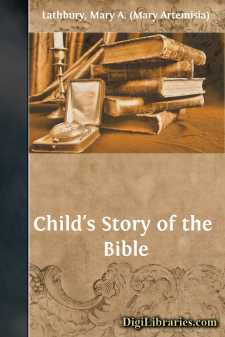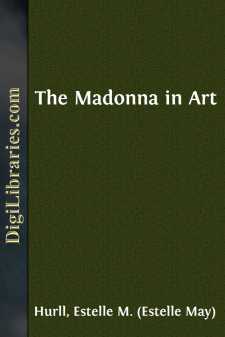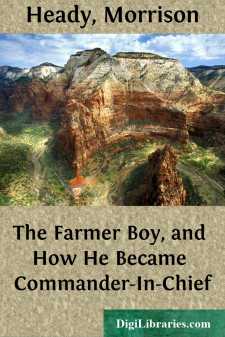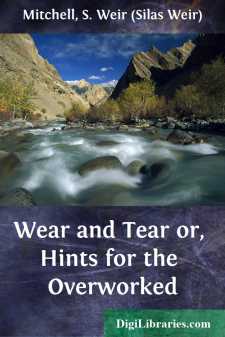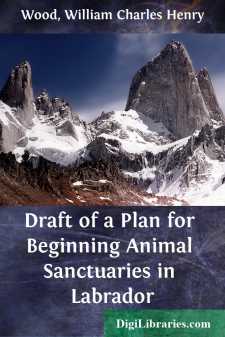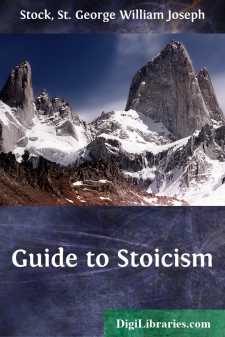Non-Classifiable
- Non-Classifiable 1768
Non-Classifiable Books
Sort by:
PREFACE. The Reformed Presbytery, at a meeting in Philadelphia, October 6th 1880, "Resolved, That another edition of the Auchensaugh Deed be published," and appointed the undersigned a committee "to attend to this business with all convenient speed." This Presbytery, after forty years' experience, during which opportunities have been afforded for examining the opinions and...
more...
One of the worst characteristics of modern fiction is its so-called truth to nature. For fiction is an art, as painting is, as sculpture is, as acting is. A photograph of a natural object is not art; nor is the plaster cast of a man's face, nor is the bare setting on the stage of an actual occurrence. Art requires an idealization of nature. The amateur, though she may be a lady, who attempts to...
more...
CHILD'S STORY OF THE BIBLE CHAPTER I. Away back in the beginning of things God made the sky and the earth we live upon. At first it was all dark, and the earth had no form, but God was building a home for us, and his work went on through six long days, until it was finished as we see it now. On the first day God said, "Let there be light," and the black night turned to gray, and light...
more...
INTRODUCTION. It is now about fifteen centuries since the Madonna with her Babe was first introduced into art, and it is safe to say that, throughout all this time, the subject has been unrivalled in popularity. It requires no very profound philosophy to discover the reason for this. The Madonna is the universal type of motherhood, a subject which, in its very nature, appeals to all classes and...
more...
by:
Morrison Heady
The reader will remember, that, in the preface of "The Printer Boy," I promised the next volume should be "The Farmer Boy; or, How George Washington became President." That pledge has never been redeemed, though some labor has been performed with reference to it. And now Providence seems to direct the fulfilment of the promise by the pen of another, soon to be well known, I doubt not,...
more...
WEAR AND TEAR, OR HINTS FOR THE OVERWORKED. Many years ago I found occasion to set before the readers of Lippincott's Magazine certain thoughts concerning work in America, and its results. Somewhat to my surprise, the article attracted more notice than usually falls to the share of such papers, and since then, from numerous sources, I have had the pleasure to learn that my words of warning have...
more...
PREFACE When I consented to prepare this volume for a series, which should deal with the notables of American history with some familiarity and disregard of historic gravity, I did not anticipate the seriousness of the task. But investigation of the subject showed me that while Captain John Smith would lend himself easily enough to the purely facetious treatment, there were historic problems worthy of...
more...
I. RECAPITULATION. The original address on Animal Sanctuaries in Labrador was published in the spring of 1911. The Supplement was published in the summer of 1912. The present Plan, or Second Supplement, is now being submitted for consideration to the Fourth Annual Meeting of the Commission of Conservation at the beginning of 1913. These papers are published for free distribution among those who are...
more...
PHILOSOPHY AMONG THE GREEKS AND ROMANS. Among the Greeks and Romans of the classical age philosophy occupied the place taken by religion among ourselves. Their appeal was to reason not to revelation. To what, asks Cicero in his Offices, are we to look for training in virtue, if not to philosophy? Now, if truth is believed to rest upon authority it is natural that it should be impressed upon the mind...
more...
The First Home in the Metropolis. We had never lived in New York. This fact will develop anyway, as I proceed, but somehow it seems fairer to everybody to state it in the first sentence and have it over with. Still, we had heard of flats in a vague way, and as we drew near the Metropolis the Little Woman bought papers of the train boy and began to read advertisements under the head of "Flats and...
more...




